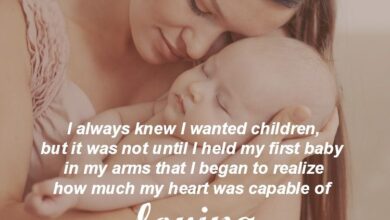
Falling out of love, a painful yet common experience, often leaves individuals grappling with complex emotions and difficult decisions. This exploration delves into the multifaceted nature of this experience, from understanding its causes and effects to navigating the process with dignity and respect. We’ll examine the emotional and psychological toll, the role of communication, and potential strategies for coping.
This insightful look at falling out of love will cover everything from defining the concept itself to discussing the various stages individuals may encounter. We’ll explore the internal and external factors that contribute to this change in feelings, alongside the potential impact on the relationship and the individual’s well-being. It’s a journey through a sensitive topic, designed to provide understanding and support.
Defining the Concept of Falling Out of Love
Falling out of love is a complex emotional process that often goes beyond simple dissatisfaction or conflict in a relationship. It’s a gradual shift in feelings, a fading of the initial passion and romantic attachment. While conflict and a lack of intimacy can contribute to the experience, falling out of love is distinct; it’s about the loss of that special connection and affection that characterized the beginning of the relationship.Falling out of love isn’t necessarily a sign of a bad relationship, nor does it always indicate a failure.
Falling out of love can be a really tricky thing, especially when you’re trying to figure out what went wrong. It’s definitely a complex emotional journey. Recently, the news of Normani and DK Metcalf’s engagement has sparked a lot of discussion about love and relationships, particularly considering the speed at which some relationships progress. Perhaps it’s a reminder that even seemingly perfect pairings can sometimes falter, highlighting the delicate nature of love and the potential for things to change.
Understanding these nuances is key when navigating the complexities of falling out of love. normani and dk metcalf engagement offers a fascinating perspective on the topic.
It’s a natural part of life and relationships, and understanding its nuances can be helpful for navigating such transitions. It’s a complex process that can be influenced by various factors, including evolving values, changing priorities, and a shift in personal needs.
Defining Falling Out of Love
Falling out of love is the progressive weakening or disappearance of romantic feelings and passionate attachment towards a partner. This contrasts with other relationship issues like conflict, where disagreements and tensions are present, or lack of intimacy, which refers to a decline in emotional connection and physical closeness. Falling out of love specifically involves a lessening of affection and the initial idealized image of the partner.
Emotional and Psychological Processes
The emotional and psychological processes involved in falling out of love are multifaceted. Individuals may experience a range of emotions, from sadness and disappointment to relief and acceptance. These feelings often involve grief-like responses, akin to loss, as individuals adjust to the fading of their love. The process can be marked by introspection and self-reflection as individuals reassess their values, priorities, and needs.
A crucial part of this process is often the realization that the relationship no longer fulfills the same needs or provides the same level of satisfaction.
Stages of Falling Out of Love
Individuals experiencing a decline in love may go through distinct stages, although these aren’t always linear or easily identifiable. These stages may include:
- Initial Awareness: A gradual recognition that the initial passion is diminishing, or that the relationship no longer feels fulfilling.
- Emotional Distance: A growing detachment from the partner, characterized by a decrease in intimacy and a reduced desire for connection.
- Acceptance and Reflection: A period of introspection where individuals acknowledge the reality of the situation and contemplate their future choices.
- Acceptance of the Change: The eventual acceptance of the change in feelings and the potential need for separation or restructuring of the relationship.
Comparison of Falling Out of Love and Losing Attraction
The following table Artikels the key differences between falling out of love and losing attraction:
| Feature | Falling Out of Love | Losing Attraction |
|---|---|---|
| Core Issue | Diminished affection and emotional connection | Decreased physical or romantic interest |
| Emotional Impact | Sadness, disappointment, potential grief | Disinterest, detachment, or boredom |
| Relationship Impact | Potential for renegotiating the relationship or separation | Potential for continued relationship but with decreased passion |
| Timeframe | Gradual decline over time | Can be more sudden or gradual |
Understanding the Causes of Falling Out of Love

Falling out of love is a complex process, often influenced by a multitude of interwoven factors. It’s not a simple, sudden event, but rather a gradual shift in feelings and priorities. Understanding the underlying causes can provide valuable insights into navigating relationships and fostering emotional well-being.The experience of falling out of love is rarely a singular event; rather, it’s a process influenced by a variety of internal and external factors.
These factors can act independently or in concert, subtly changing the dynamic of a relationship over time. Recognizing these influences is crucial for understanding the complexities of this often-challenging experience.
Unmet Needs and Evolving Values
The initial spark of love often centers around a shared sense of fulfillment. However, as time progresses, individual needs and values can evolve, leading to a disconnect. Needs, such as emotional support, intellectual stimulation, or physical intimacy, may no longer be met as the relationship develops. Evolving values, including differing priorities in career, family, or personal growth, can also contribute to a waning affection.
For example, a couple might initially share a passion for travel, but as one partner prioritizes a stable career and the other seeks adventure, their shared values may drift apart.
Changing Priorities and External Stressors
Life often throws curveballs in the form of significant changes, both personally and professionally. These shifts can significantly impact the dynamic of a relationship. A job relocation, the birth of a child, or a serious illness can introduce new priorities and demands, potentially causing a partner to re-evaluate their commitment to the relationship. External stressors, such as financial difficulties or family conflicts, can create significant tension and anxiety, often affecting the emotional connection within a partnership.
For example, a sudden job loss can introduce financial worries and stress, causing a partner to withdraw emotionally and potentially view the relationship as an added burden.
Communication Breakdown and Unresolved Conflicts
Effective communication is fundamental to a healthy relationship. However, communication breakdowns, whether due to misinterpretations, avoidance, or lack of empathy, can erode the emotional connection between partners. Unresolved conflicts, left unattended, can fester and create resentment and distance. Consistent negativity and a lack of positive reinforcement can slowly erode the affection and love within a relationship. For example, a couple might disagree on financial decisions, and if they are unable to communicate effectively and resolve the issue, the conflict can grow, impacting their emotional connection.
Internal vs. External Factors Influencing Falling Out of Love
| Category | Potential Causes |
|---|---|
| Internal Factors | Unmet needs, evolving values, changing priorities, personal growth, decreased emotional intimacy, loss of passion |
| External Factors | Stressful life events, job changes, financial difficulties, family issues, health concerns, lack of communication, unresolved conflicts, differing personal goals |
Exploring the Effects of Falling Out of Love

Falling out of love is a complex emotional journey, often marked by a range of difficult feelings. This experience can deeply impact individuals, affecting their self-perception, relationships, and overall well-being. Understanding these effects is crucial for navigating this transition constructively.The process of falling out of love, while painful, is a natural part of life. It can be triggered by a variety of factors, from unmet expectations to a gradual shift in feelings.
Recognizing the potential emotional and psychological toll is essential for fostering self-compassion and resilience during this period.
Emotional Toll on Individuals
The emotional toll of falling out of love can be significant, encompassing a spectrum of negative feelings. Sadness, disappointment, and a sense of loss are common reactions. Individuals may experience a profound sense of vulnerability and instability, as the familiar comfort of the relationship is replaced by uncertainty. These feelings can be intense and persistent, requiring a mindful approach to manage them effectively.
Psychological Effects
Falling out of love can trigger a variety of psychological responses. Grief, often associated with the loss of a significant relationship, can manifest as sadness, anger, or even denial. Anxiety and fear about the future, including the possibility of being alone, are also potential outcomes. These psychological effects can be particularly challenging when they interfere with daily life or lead to feelings of hopelessness.
It’s important to acknowledge these reactions as valid and to seek support if necessary.
Impact on Self-Esteem and Confidence
Falling out of love can significantly impact self-esteem and confidence. Individuals may question their worth or desirability if they perceive the relationship’s end as a reflection of personal inadequacy. This can manifest as self-doubt and a diminished sense of self-efficacy. However, it’s important to remember that falling out of love doesn’t define a person’s value or worth.
Falling out of love can be a surprisingly disorienting experience, leaving you feeling adrift and searching for answers. It’s a process of unraveling, like watching the intricate threads of a tapestry slowly come undone. Recently, I’ve been delving into the complexities of emotional detachment, particularly in the context of the show “The White Lotus” and its exploration of mental health struggles, like with the use of Lorazepam.
My recent post, ” the white lotus lorazepam and me “, touches on this fascinating intersection of societal pressures and personal struggles. Ultimately, the experience has led me to a deeper understanding of the subtle shifts that can occur when love fades, forcing a reassessment of what love truly means.
Maintaining a positive self-image is crucial during this transition.
Impact on Relationship Dynamics and Future Interactions
The end of a relationship often necessitates a shift in relationship dynamics. The transition from intimacy to distance can be challenging, and navigating this shift requires sensitivity and respect. Future interactions, if any, may be strained or awkward, demanding an understanding of boundaries and emotional space. However, it’s possible to maintain respectful communication and healthy boundaries, even after the dissolution of a romantic relationship.
Managing Emotional Distress
Managing the emotional distress associated with falling out of love requires self-awareness, self-care, and potentially professional guidance. Seeking support from friends, family, or a therapist can be beneficial. Engaging in activities that promote emotional well-being, such as exercise, hobbies, or creative pursuits, can also help mitigate negative feelings. Prioritizing self-compassion and understanding the natural process of grieving a relationship is crucial for navigating this difficult period.
Categories of Effects
| Category | Description |
|---|---|
| Emotional | Sadness, disappointment, loss, vulnerability, and instability are common emotional responses. |
| Psychological | Grief, anxiety, fear about the future, and a potential sense of hopelessness can be psychological outcomes. |
| Relationship-based | Shift in dynamics, potential awkwardness in future interactions, and the importance of maintaining healthy boundaries are relationship-focused effects. |
Strategies for Navigating the Process: Falling Out Of Love
Falling out of love, while painful, is a part of life’s journey. Understanding how to navigate this experience is crucial for maintaining emotional well-being and moving forward. This section explores practical strategies for coping with the emotional complexities of loss and the transition into a new phase.
Processing Emotions Healthily
Healthy emotional processing is essential during a breakup. Suppression of feelings can lead to long-term emotional distress. Instead, acknowledging and accepting the full range of emotions – sadness, anger, confusion, and even relief – is vital. Engaging in activities that promote emotional release, such as journaling, talking to a trusted friend or therapist, or engaging in creative outlets, can be profoundly helpful.
Allowing yourself time to grieve the loss of the relationship and the idealized version of the future you may have envisioned is an important part of the healing process.
Maintaining Self-Respect
Maintaining self-respect is crucial during a breakup. Avoid dwelling on past mistakes or placing blame. Instead, focus on personal growth and self-improvement. Recognize that you deserve respect and kindness, and that your worth is not tied to the relationship’s outcome. Celebrate your strengths and accomplishments, and remind yourself of your value as an individual.
Falling out of love can be a tricky thing, a slow fade into indifference. It’s not always dramatic, sometimes it’s just a gradual shift in perspective. Learning about different perspectives can help, like getting to know Hetal Patel, a successful designer and entrepreneur, who shares insights into navigating challenges in her field. get to know hetal patel Her journey might offer some unexpected parallels to understanding the subtle shifts in our own relationships, which can ultimately lead to a clearer picture of what we need in a relationship, or when it’s time to move on.
Ultimately, understanding the complexities of love’s ebb and flow is a journey, not a destination.
Avoid engaging in self-destructive behaviors like excessive drinking or isolation. Focus on positive self-talk and build a support system.
Open Communication and Honesty
Open and honest communication, especially when a relationship is ending, can be difficult but vital. This includes communicating clearly and respectfully about the reasons for the breakup, without resorting to blame or accusations. Honesty, while potentially painful, fosters mutual understanding and respect. Maintaining a healthy degree of honesty throughout the process, even when difficult, can lead to a smoother transition and potentially prevent future misunderstandings.
Setting Healthy Boundaries
Setting healthy boundaries is critical for protecting your emotional well-being after a breakup. This includes establishing clear limits on contact, communication frequency, and shared spaces. Avoid engaging in behaviors that prolong the pain, such as checking social media or contacting the other person excessively. Respect the other person’s need for space and distance. Prioritize your own emotional needs and establish clear expectations for the future.
Managing the Transition with Dignity and Respect
Managing the transition with dignity and respect involves treating all parties involved with consideration and empathy. Avoid engaging in public arguments or displays of anger. Respect the other person’s feelings, even if you disagree. Focus on maintaining a civil and respectful interaction, even when difficult. Avoid spreading rumors or engaging in gossip.
Coping Strategies, Potential Challenges, and Success Measures
| Coping Strategies | Potential Challenges | Success Measures |
|---|---|---|
| Journaling to process emotions | Difficulty expressing feelings, fear of vulnerability | Increased self-awareness, emotional release, reduced anxiety |
| Seeking support from friends and family | Fear of burdening others, feeling judged | Stronger support system, increased emotional stability, reduced isolation |
| Engaging in hobbies and activities | Lack of motivation, feeling overwhelmed | Improved mood, increased sense of purpose, rediscovering interests |
| Professional counseling | Cost, scheduling, fear of judgment | Enhanced emotional regulation, improved communication skills, faster healing process |
| Setting clear boundaries | Maintaining objectivity, difficulty saying “no” | Reduced conflict, improved self-respect, clearer sense of personal space |
Illustrative Scenarios and Case Studies
Falling out of love is a complex emotional experience, often marked by a gradual shift rather than a sudden, dramatic event. Understanding the nuanced ways individuals navigate this process can provide valuable insights into the human heart and the complexities of relationships. This section delves into illustrative scenarios and case studies, highlighting the diverse responses and outcomes.
Scenarios of Falling Out of Love
Falling out of love isn’t a one-size-fits-all experience. Factors such as the length of the relationship, the nature of the initial connection, and the presence of external pressures all play a role in how individuals experience and respond to this shift in feelings. The following scenarios illustrate different facets of this experience.
- A long-term relationship experiencing a gradual erosion of intimacy. This scenario often involves a gradual drift apart, with shared interests diminishing and communication becoming less frequent. This can manifest in a feeling of being emotionally disconnected, leading to a sense of emptiness and a realization that the spark has vanished.
- A relationship impacted by significant external stressors. Financial difficulties, health crises, or family issues can significantly strain a relationship. These pressures can create emotional distance and resentment, leading to a falling out of love.
- A relationship where fundamental differences emerge over time. While initially attracted to each other’s differences, fundamental incompatibilities in values, goals, or lifestyles can become increasingly apparent. This often leads to a growing sense of disconnect and a realization that the relationship no longer aligns with individual needs.
Navigating the Experience Successfully
Successful navigation of falling out of love requires empathy, honesty, and a commitment to self-care. Open communication, even during difficult conversations, can be instrumental in navigating the situation.
- Acknowledging the shift in feelings. Rather than denying or suppressing the feelings, recognizing the change in affection is the first step toward resolving the situation.
- Honesty and openness with the partner. Honest and open communication about the shift in feelings can facilitate a mutually respectful understanding and enable the couple to explore potential solutions, or, if necessary, facilitate a graceful separation.
- Prioritizing self-care. Maintaining emotional well-being during this challenging time is crucial. Engaging in activities that foster personal growth and well-being can help individuals cope with the emotional turmoil.
Potential Challenges and Pitfalls
Falling out of love can be fraught with emotional distress. Individuals may experience feelings of guilt, sadness, or regret. Maintaining healthy boundaries is critical to navigating this experience.
- Fear of confrontation. The fear of hurting the other person can lead to avoidance and unspoken resentments.
- Holding onto the past. Individuals may struggle to let go of the past and move forward, clinging to idealized memories of the relationship.
- Difficulty accepting the reality of the situation. Some individuals may resist acknowledging the change in feelings, hindering their ability to move forward.
A Case Study of Successful Resolution
Sarah and David had been together for seven years. Their relationship had started with a passionate connection, but over time, their values and life goals had diverged. They realized they were no longer compatible. Instead of letting the situation fester, they engaged in open and honest communication. They acknowledged their feelings, explored the reasons for the shift in their affections, and agreed on a respectful separation.
This process involved acknowledging their feelings, actively listening to each other’s perspectives, and establishing healthy boundaries. They ultimately agreed to remain friends.
Individual Responses to the Same Scenario
Individuals react differently to the same scenario, reflecting their personal values, coping mechanisms, and past experiences. Some may seek support from friends or family, while others may prefer to process their emotions independently.
| Individual | Response | Challenges Faced | Outcome |
|---|---|---|---|
| Amelia | Seeking professional guidance | Fear of confrontation, guilt | Successful separation, improved mental health |
| Benjamin | Avoidance, denial | Internal conflict, potential for resentment | Strained relationship, eventual separation |
| Chloe | Open communication | Initial hurt feelings, but respect | Mutual agreement for separation, continued friendship |
Addressing Potential Misconceptions
Falling out of love is a complex emotional experience, often fraught with misconceptions. It’s important to approach this topic with sensitivity and an understanding of the nuances involved. Misinterpretations can lead to unnecessary distress or a mischaracterization of the situation. This section aims to clarify some common misunderstandings surrounding the process of falling out of love.Understanding the difference between falling out of love and other related concepts is crucial.
This will help individuals navigate this emotional journey with greater clarity and emotional intelligence. Recognizing the fluidity of love and the impact of personal growth on relationships is vital for a healthy perspective.
Common Misconceptions About Falling Out of Love
Misconceptions surrounding falling out of love often stem from romanticized notions of love and relationships. A common misconception is that falling out of love implies a flaw in the relationship or oneself. This is often inaccurate.
“Love is not static; it evolves and changes over time.”
This understanding is crucial to prevent the belief that falling out of love signals a failure. Instead, it can reflect a natural progression of feelings and a shift in priorities and needs.
Falling Out of Love vs. Falling Out of Attraction
It’s essential to distinguish between falling out of love and falling out of attraction. Falling out of attraction can be a temporary phenomenon, often related to shifts in physical interest or perceived compatibility. Falling out of love, however, signifies a more profound shift in emotional connection.Falling out of attraction may be influenced by external factors such as changes in appearance or lifestyle.
Falling out of love, conversely, involves a significant alteration in the emotional bond and shared values.
The Fluidity of Love
Love is not a fixed entity. It’s a dynamic emotion that can change and adapt over time. As individuals grow and evolve, their needs and expectations may shift, potentially impacting the nature of their relationship.This fluidity does not necessarily indicate a negative outcome. Instead, it reflects the natural progression of relationships and the ability for love to transform and deepen as individuals mature.
The Role of Personal Growth in Relationships
Personal growth is a significant factor in relationship dynamics. As individuals develop and mature, their priorities, values, and perspectives may shift. This evolution can influence the emotional connection within a relationship.It is essential to acknowledge that personal growth is not always synonymous with the demise of a relationship. Instead, it can be a catalyst for adaptation and growth within the relationship itself.
Love vs. Infatuation
Infatuation is characterized by intense, passionate feelings, often based on idealized perceptions. Love, on the other hand, is a more complex and enduring emotion that involves deeper understanding, commitment, and shared values.Infatuation is often a precursor to love, but it is distinct from the enduring emotional connection and commitment that define a lasting relationship. Infatuation can fade, while love, when nurtured, can deepen and strengthen over time.
Misconception Rebuttals
| Misconception | Explanation | Rebuttal |
|---|---|---|
| Falling out of love means the relationship was flawed. | This suggests that love is a static entity and that any change indicates a problem. | Love is dynamic. Changes in feelings can occur without implying inherent flaws in the relationship or individuals. |
| Falling out of love is a sign of weakness. | This places blame on the individual experiencing the shift in feelings. | Falling out of love is a natural human experience. It reflects the evolution of emotions and priorities, not a personal failing. |
The Future of the Relationship (If Applicable)
Falling out of love doesn’t automatically necessitate the end of a relationship. Many couples navigate this challenging transition and find new paths forward. Understanding the potential avenues for the future of a relationship, from continuing in a different form to respectfully ending it, is crucial for both partners. The process requires empathy, honesty, and a willingness to consider various possibilities.A relationship facing diminished love can evolve into a different kind of connection.
This could involve re-evaluating priorities and focusing on shared values, hobbies, or mutual respect beyond romantic love. Sometimes, a shift in focus can reignite a sense of connection, albeit in a different capacity. It is essential to acknowledge that a relationship can endure even if the initial passion wanes, transforming into a bond built on trust, companionship, and shared experiences.
Potential Paths Forward in Diminished Love Relationships
Navigating a relationship where love has diminished requires careful consideration of the relationship’s foundation. Factors such as shared values, mutual respect, and the desire for continued companionship play crucial roles in determining the relationship’s future trajectory. Exploring various options allows partners to make informed decisions that align with their individual needs and desires.
- Maintaining a Supportive Friendship: Sometimes, the romantic spark fades, but a deep respect and affection for one another remain. In such cases, transitioning the relationship into a supportive friendship can be a positive outcome. This allows for continued companionship without the pressure of romantic expectations. For example, a couple might maintain a strong friendship while acknowledging that their romantic relationship has evolved.
- Continuing as a Committed Partnership: A couple might choose to continue their relationship, prioritizing shared values, mutual support, and companionship. This may involve redefining the relationship, acknowledging the loss of romantic love, and focusing on the positive aspects of their connection. This can involve shared interests, mutual support, and respect. Examples include couples who shift from a passionate romantic relationship to a deep, committed partnership based on shared values and mutual respect.
- Exploring Open Relationships: In certain situations, a couple might explore open relationships. This option allows for the expression of intimacy and connection outside the traditional romantic framework. Open communication, trust, and mutual respect are paramount. For example, a couple might find that exploring intimacy with others outside the relationship provides fulfillment and helps them navigate their individual needs within the relationship.
- Ending the Relationship Respectfully: Sometimes, the most appropriate path forward is to end the relationship. This decision is personal and must be made with care and respect for both partners. A respectful ending involves open communication, mutual understanding, and a commitment to moving forward in a healthy way. Examples include couples who recognize that their needs and desires have diverged significantly, leading them to mutually agree on a respectful separation.
Importance of Self-Care During Transition
Self-care is paramount during this period of transition. Focusing on personal well-being helps individuals navigate the emotional complexities of a changing relationship. It allows for introspection, clarity, and the development of a strong sense of self, which is essential for making informed decisions about the future. Prioritizing self-care during a relationship transition allows individuals to process their emotions and maintain their mental and emotional health.
- Prioritizing Personal Needs: This involves engaging in activities that bring joy and fulfillment, such as hobbies, spending time with loved ones, or pursuing personal goals. Prioritizing self-care allows individuals to address their own needs and emotional well-being.
- Seeking Professional Support: Therapy or counseling can provide valuable tools and support for navigating the emotional challenges of a changing relationship. Seeking professional guidance allows individuals to process their emotions and make informed decisions.
- Maintaining Healthy Boundaries: Setting healthy boundaries in all aspects of life, including the relationship, is crucial for protecting emotional well-being. Maintaining healthy boundaries promotes emotional health and reduces the risk of unhealthy patterns.
Potential Relationship Outcomes Based on Approach
This table illustrates potential outcomes based on the chosen approach for a relationship where love has diminished.
| Approach | Potential Outcomes |
|---|---|
| Maintaining a Supportive Friendship | Continued companionship, mutual respect, potential for future opportunities. |
| Continuing as a Committed Partnership | Stronger bond built on shared values, mutual support, and deeper understanding. |
| Exploring Open Relationships | Increased intimacy and fulfillment, potential for personal growth and relationship evolution, but also increased risk of conflict if not managed carefully. |
| Ending the Relationship Respectfully | Emotional space for personal growth, potential for healthier future relationships, but also potential for emotional pain. |
Final Summary
In conclusion, falling out of love is a complex and deeply personal experience. While it can be painful, understanding the underlying causes, recognizing the emotional impact, and implementing constructive strategies can pave the way for a healthier and more respectful resolution. Ultimately, this journey is about navigating change, prioritizing self-care, and making choices aligned with personal well-being, while respecting the other person involved.
This exploration aims to provide valuable insights into managing such a challenging situation.




